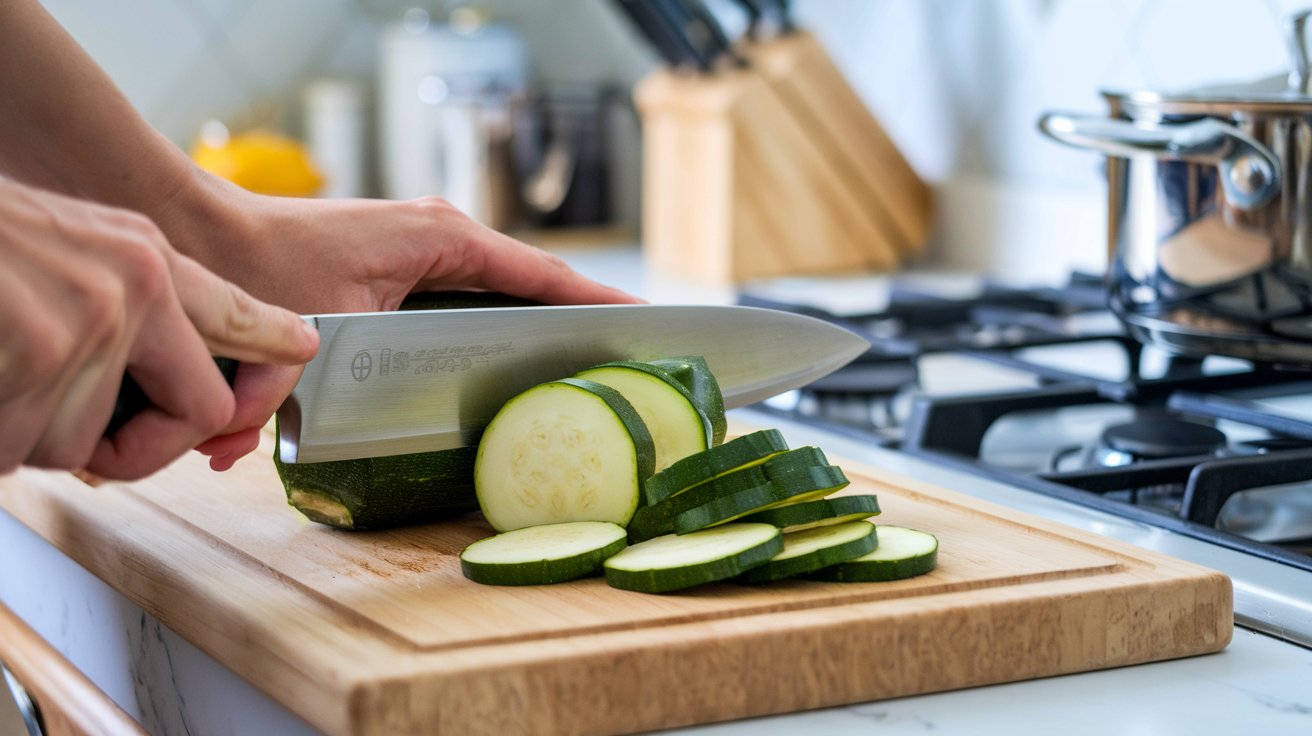Starting fresh in a new year is exciting. It’s a time when many of us think about making positive changes in our lives. Whether you’re focused on mental health, healthy eating, or professional development, the start of a new year offers a perfect chance to begin. So here are 75 of my best New Year’s Resolutions.
Setting new year goals isn’t just about making big promises. It’s about taking small steps toward real change. Statistics show that while many U.S. adults make resolutions, most give up by February.
But don’t let past experiences discourage you. This year can be different. The key is choosing the right goals and having a solid plan to achieve them.
From learning a new hobby to improving your career, there are countless ways to make positive lifestyle changes. The best resolutions are ones that matter to you, not ones driven by peer pressure or others’ expectations.
Ready to make meaningful changes that last the entire year? Let’s explore some inspiring resolution ideas that can help you create the life you want.
75 Best New Year’s Resolutions
1. Start a Gratitude Journal
Keeping a gratitude journal is a powerful way to focus on the positives in your life. Each day, jot down a few things you’re grateful for, whether they’re big or small. This practice can help shift your mindset to a more positive outlook and improve your mood over time. Plus, revisiting these entries later can be a great reminder of the good things in your life, especially when you need a boost.
2. Drink More Water
Increasing your water intake is a simple resolution that offers multiple health benefits. Staying hydrated supports energy levels, mental clarity, and even mood. Start small by setting reminders throughout the day or using a water-tracking app to help you meet your daily goal. Aiming for at least 8 glasses per day is a great starting point, but you can adjust according to your needs, activity level, and climate.
3. Create a Cleaning Schedule You’ll Stick To
A cleaning schedule can help keep your home in order without feeling overwhelming. Break down tasks into manageable daily or weekly actions, and focus on specific areas each day. This approach makes cleaning feel less daunting and easier to maintain. Start with a few essential tasks, like kitchen cleanup or laundry days, and add more once you get into a routine. A tidy environment can also improve focus and reduce stress.
4. Join a Club
Joining a club is an excellent way to meet like-minded people and pursue a hobby you love. Whether it’s a book club, hiking group, or photography class, clubs provide a structured way to engage in activities you’re passionate about. They also give you regular opportunities to learn new things and make friends with shared interests. Find a local group or explore online options for a convenient way to stay connected and inspired.
5. Practice Mindfulness
Mindfulness is the practice of being present and fully engaged with the current moment. It helps reduce stress and increase awareness by focusing on your breathing, thoughts, and surroundings. You can start with short daily meditation sessions or incorporate mindfulness into everyday activities like walking or eating. Mindfulness builds resilience and helps you react to situations with calmness, making it a valuable tool for mental well-being and personal growth.
6. Plan a Vacation
Planning a vacation is a fun way to break from routine and give yourself something exciting to look forward to. Research destinations, accommodations, and activities that interest you, and start budgeting for the trip. Even a short getaway can rejuvenate your energy, reduce stress, and provide lasting memories. Whether it’s a relaxing beach trip or an adventurous mountain escape, a well-planned vacation can recharge and inspire you.
7. Take the Stairs More Often
Choosing the stairs over the elevator is a simple way to boost your physical activity without committing to a workout. It strengthens your legs, supports cardiovascular health, and can be done almost anywhere. Start by taking the stairs a few times a week, then gradually increase as you feel comfortable. This small habit can add up to significant health benefits over time, improving endurance, energy levels, and heart health.
8. Exercise Regularly
Making exercise a regular part of your life improves physical health, mental clarity, and overall mood. Start by setting realistic goals and finding activities you enjoy, whether it’s jogging, yoga, or group fitness classes. Begin with a few days a week, and build up from there. Regular exercise can boost energy, reduce stress, and even improve sleep. Remember, any form of movement counts, so find what works best for you.
9. Cook More Meals at Home
Cooking more meals at home allows you to control ingredients and make healthier choices. Start by planning meals ahead of time and using simple recipes you enjoy. Cooking at home also helps save money and allows you to experiment with new flavors and dishes. As you build your cooking skills, you may find that meal prep becomes a rewarding and enjoyable habit that benefits both your body and your wallet.
10. Reduce Added Sugar Intake
Cutting back on added sugars can improve energy levels, mental focus, and overall health. Begin by reading food labels and choosing natural options like fruits to satisfy your sweet cravings. Reducing sugar gradually will help you adjust without feeling deprived. Small changes, like swapping sugary drinks for water or tea, can make a big difference over time. You’ll notice more stable energy levels and may feel healthier overall.
11. Host a Healthy Dinner Party
A healthy dinner party is a great way to gather friends and family around nourishing food and positive conversation. Focus on a balanced menu with colorful, seasonal ingredients and consider asking guests to bring their favorite healthy dishes. You can even try new recipes together as a fun activity. This resolution combines social connection with mindful eating, making it a win-win for your well-being and relationships.
12. Get a Life Coach
Working with a life coach can help you set and achieve personal or professional goals. A life coach provides guidance, accountability, and a fresh perspective to help you identify strengths and areas for growth. Sessions with a coach can clarify your goals and outline actionable steps toward achieving them. This support system can be especially helpful if you’re going through transitions or seeking personal development.
13. Spend More Time with Family
Spending quality time with family strengthens bonds and creates lasting memories. Plan regular family activities, like game nights or outings, to reconnect with loved ones. Even short, meaningful interactions can improve relationships and provide emotional support. Family time is essential for building trust, understanding, and love, and it’s a wonderful way to unwind and recharge together, reinforcing the importance of close connections.
14. Practice Active Listening
Active listening involves fully focusing on the speaker, avoiding interruptions, and showing empathy. This skill can improve relationships and enhance communication with friends, family, and colleagues. Practice by listening without planning your response and maintaining eye contact. Respond thoughtfully to show you’ve understood. Active listening builds trust, reduces misunderstandings, and can strengthen bonds, creating a supportive environment in all your relationships.
15. Set a Weekly Meal Plan
Setting a weekly meal plan simplifies grocery shopping and helps you make healthier choices. Start by selecting recipes you want to try and organizing meals around similar ingredients. A meal plan also reduces the likelihood of opting for less healthy last-minute options and saves time throughout the week. This approach allows for balanced, nutritious meals and can help you stay on track with dietary goals.
16. Practice Digital Detox Days
Digital detox days give your mind a break from constant screen time. Choose one day each week to limit or avoid digital devices and instead engage in offline activities like reading, hiking, or cooking. These breaks help reduce eye strain, improve focus, and relieve stress associated with digital overload. A regular digital detox can help you feel more present, connected, and refreshed when you return to your devices.
17. Cut Back on Social Media Time
Reducing time on social media allows you to engage more meaningfully with real-life experiences. Set limits using app timers or dedicate specific hours of the day for social media use. This resolution can improve focus, reduce stress, and help cultivate healthier self-esteem by minimizing comparisons. Focusing on genuine connections and interests outside social media can lead to a more fulfilling day-to-day life.
18. Write Love Letters to Family or Friends
Writing love letters is a heartfelt way to show appreciation to the important people in your life. These letters allow you to express feelings and share memories in a thoughtful way that can bring you closer together. Unlike text messages, handwritten letters can be cherished as keepsakes. This practice fosters gratitude, encourages emotional openness, and reminds others of how much they mean to you.
19. Take Up a Creative Hobby
Pursuing a creative hobby, like painting, knitting, or playing an instrument, can provide relaxation and a sense of accomplishment. Creative activities engage different parts of your brain, boosting problem-solving skills and reducing stress. Set aside time each week to explore something new, whether it’s a class or a self-paced project. This resolution can add joy to your routine and help you develop a rewarding new skill.
20. Prioritize Sleep and Rest
Making sleep a priority is essential for physical health and mental clarity. Aim for 7-9 hours of sleep each night and establish a consistent bedtime routine to support better rest. Consider limiting screen time before bed, practicing relaxation techniques, and creating a calming environment. Prioritizing rest helps improve focus, mood, and resilience, making it easier to tackle the day ahead with energy and motivation.
21. Block Off Time for Focused Work
Blocking off dedicated time for focused work can help you increase productivity and achieve more in less time. Use this uninterrupted period to tackle high-priority tasks without distractions. You can try time management techniques like the Pomodoro method or simply set a timer for 30-60 minutes. Having scheduled focus time ensures that you get essential work done, and it can improve concentration, reduce stress, and help you achieve your goals faster.
22. Set Realistic Expectations
Setting realistic expectations is crucial for maintaining motivation and avoiding burnout. Be honest with yourself about what you can achieve within a given time frame, and break larger goals into manageable steps. Celebrate small wins to keep up your momentum. This approach reduces frustration and increases the likelihood of following through on your resolutions. Being realistic doesn’t mean setting the bar low; it means setting yourself up for long-term success.
23. Limit Alcohol Intake
Reducing alcohol intake can improve your physical health, mental clarity, and overall well-being. Set specific goals, like cutting down to weekends or reducing the number of drinks per week. You can replace alcoholic drinks with sparkling water or herbal teas to ease the transition. Limiting alcohol can lead to better sleep, increased energy, and improved mood, making it a positive step toward a healthier lifestyle.
24. Become a Mentor
Mentoring someone allows you to share your experience and knowledge while supporting another person’s growth. Whether in your field of expertise or through volunteering, mentoring provides a rewarding opportunity to guide others. It also strengthens your own skills and helps build a sense of purpose. Being a mentor is a fulfilling way to make a positive impact on someone’s life and develop a meaningful connection.
25. Delegate Tasks at Work
Delegating tasks allows you to focus on high-priority responsibilities and reduces your workload. Start by identifying tasks that others can handle and communicate expectations clearly. Delegation builds trust within your team, improves productivity, and prevents burnout. By sharing responsibilities, you create a more collaborative environment and give others the chance to develop their skills, making work more manageable and enjoyable for everyone involved.
26. Explore Diverse Cuisines
Trying new cuisines is an exciting way to expand your palate and experience different cultures. Start by choosing a cuisine you’ve never tried, or experiment with cooking new recipes at home. Exploring different flavors and cooking styles can inspire creativity in the kitchen and make meal planning more enjoyable. Whether dining out or cooking at home, this resolution adds variety and fun to your meals.
27. Try a New Cooking Technique
Learning a new cooking technique can elevate your culinary skills and expand your repertoire. Techniques like roasting, sautéing, or grilling can transform familiar ingredients. You might also explore more advanced methods like sous vide or fermenting. Start by researching recipes that use the technique or watch tutorials to gain confidence. Experimenting with new methods will help you become more versatile in the kitchen and add exciting twists to your meals.
28. Declutter Your Workspace
A clean and organized workspace can enhance focus, productivity, and creativity. Start by sorting through papers, supplies, and other items to create a clutter-free environment. Organize essentials in accessible spots, and consider adding personal touches like plants or motivational quotes. Decluttering reduces distractions and improves mental clarity, helping you feel more motivated and prepared for tasks at hand.
29. Save More Money
Increasing your savings can provide a sense of security and help you reach financial goals. Start by reviewing your monthly expenses and identifying areas to cut back, like dining out or subscriptions. Setting up automatic transfers to a savings account can make saving easier. Aim to save a specific percentage of your income each month, and celebrate small milestones. Saving money builds financial resilience and creates a safety net for the future.
30. Set a Monthly Budget
Creating a monthly budget can help you manage expenses and prioritize spending on things that matter most. Begin by listing income and expenses, then allocate funds for essentials, savings, and personal goals. Track your spending regularly to stay on track. A budget allows you to plan for future expenses and make informed financial decisions. Sticking to a budget fosters financial discipline and helps you achieve long-term financial health.
31. Visit a Local Farmer’s Market
Shopping at a farmer’s market supports local growers and offers fresh, seasonal produce. Take time to explore new fruits, vegetables, and other foods that you might not find at a regular grocery store. Visiting a farmer’s market is also a chance to engage with your community and learn more about local agriculture. Incorporating fresh ingredients into your meals can improve their flavor and nutritional value while supporting sustainable farming practices.
32. Commit to a Skincare Routine
Maintaining a skincare routine can boost confidence and improve the health of your skin. Start by identifying your skin type and selecting products that suit your needs, such as a gentle cleanser, moisturizer, and sunscreen. Consistency is key, so aim to follow your routine each morning and night. Over time, a dedicated skincare routine can enhance your skin’s appearance and give you a daily opportunity for self-care.
33. Practice Daily Meditation
Meditation is a powerful way to reduce stress and increase focus. Start with just a few minutes a day, practicing mindful breathing and observing your thoughts without judgment. Meditation helps create a sense of calm and presence, making it easier to manage daily challenges. With regular practice, you may notice improved emotional resilience, greater mental clarity, and a more positive outlook on life.
34. Keep a Fitness Journal
Tracking your workouts in a fitness journal can help you stay motivated and reach your fitness goals. Record your exercises, sets, repetitions, and how you felt during each session. This allows you to see progress over time, adjust your workouts, and celebrate milestones. A fitness journal keeps you accountable and provides insight into what works best for your fitness journey, helping you stay on track.
35. Start Meal Prepping Each Week
Meal prepping can save time, reduce stress, and encourage healthier eating. Set aside one day each week to plan and prepare meals in advance. Choose balanced recipes, portion them out, and store in the refrigerator or freezer for easy access. Meal prepping helps you make nutritious choices, avoid last-minute takeout, and manage portion sizes. It’s a time-saving habit that can contribute to better health and well-being.
36. Limit Screen Time Before Bed
Reducing screen time before bed can improve sleep quality and help you unwind. Blue light from devices can disrupt your body’s natural sleep rhythm, making it harder to fall asleep. Try putting away your phone and other devices at least an hour before bedtime, and replace screen time with relaxing activities like reading or journaling. This small change can lead to more restful sleep and better focus during the day.
37. Volunteer for a Cause
Volunteering for a cause you care about benefits both you and your community. Look for local organizations or nonprofits that align with your interests, whether it’s animal shelters, food banks, or environmental projects. Giving your time to help others is rewarding, and it allows you to make a difference. Volunteering also helps build connections, strengthens empathy, and provides a fulfilling way to contribute to positive change.
38. Create a 5-Year Plan
Setting long-term goals through a 5-year plan can give you direction and purpose. Reflect on your personal and professional aspirations, then outline specific milestones you’d like to achieve. Having a roadmap keeps you motivated and helps you prioritize steps needed to reach your goals. A 5-year plan offers a sense of clarity and helps you measure progress, making it easier to stay focused on what’s most important to you.
39. Take More Nature Walks
Spending time outdoors on nature walks can boost physical health and improve mental well-being. Nature provides a calming environment that reduces stress and encourages mindfulness. Incorporate regular walks in parks, trails, or green spaces into your routine. Observing plants, animals, and natural landscapes promotes relaxation and gives you a refreshing break from daily tasks, leaving you feeling revitalized.
40. Listen to Educational Podcasts
Listening to educational podcasts is a convenient way to learn on the go. Choose topics you’re interested in, like science, history, or self-improvement, and incorporate podcasts into your daily routine. Listening during your commute, workout, or household chores allows you to gain knowledge while staying productive. Educational podcasts keep you informed, spark curiosity, and inspire you to explore new ideas and perspectives.
41. Write Down Your Goals
Writing down your goals can help clarify your intentions and increase motivation. Set clear, achievable goals for the year and review them regularly to stay on track. Whether your goals are personal, financial, or fitness-related, putting them in writing can make them feel more real and attainable. Having a written record of your aspirations keeps you accountable and provides a roadmap for the steps you need to take to make them a reality.
42. Read More Books
Reading more books is a great way to expand your knowledge, reduce stress, and unwind. Set a realistic goal, like reading one book per month, and select topics that genuinely interest you. Whether it’s fiction, self-help, or a biography, books provide new perspectives and valuable insights. Creating a regular reading habit can enrich your mind, broaden your understanding of the world, and offer a healthy break from screens and digital media.
43. Improve Posture
Improving posture can benefit your physical health, reduce pain, and boost confidence. Start by practicing small changes, such as sitting up straight and keeping your shoulders relaxed. Consider exercises that strengthen core muscles, which are essential for good posture. Improved posture can enhance breathing, relieve muscle tension, and contribute to a healthier, more balanced body. This simple change can have significant long-term effects on overall well-being.
44. Reduce Caffeine Intake
Cutting back on caffeine can improve sleep quality, reduce anxiety, and prevent dependence. Start by gradually lowering the number of caffeinated beverages you consume and replacing them with herbal teas or water. Limiting caffeine intake also helps stabilize energy levels throughout the day without the crash. Reducing caffeine is a sustainable approach to balanced energy and better health, especially for those sensitive to its effects.
45. Establish a Self-Care Routine
A self-care routine promotes emotional and physical well-being by prioritizing activities that help you recharge. Incorporate daily or weekly practices like journaling, taking long baths, or spending time in nature. Consistency is key, so find self-care activities that are manageable and enjoyable. Regular self-care reduces stress and increases resilience, making it easier to handle daily challenges with a more positive outlook.
46. Send Thank-You Notes
Sending thank-you notes is a meaningful way to show appreciation and strengthen relationships. Whether for gifts, acts of kindness, or support, a handwritten note makes people feel valued. Make it a habit to send thank-you notes throughout the year to acknowledge others. This small act of gratitude can deepen connections, brighten someone’s day, and encourage a culture of appreciation in your personal and professional life.
47. Limit Impulse Purchases
Limiting impulse purchases can help you save money and avoid clutter. When shopping, pause before buying and ask if you truly need the item. Consider setting a monthly budget to manage discretionary spending more effectively. Reducing impulse purchases helps you focus on meaningful investments, curbing spending on things that don’t add lasting value. By being more intentional with purchases, you’ll find financial freedom and mental clarity.
48. Practice Mindful Eating
Mindful eating encourages you to savor each bite, recognize hunger cues, and make healthier food choices. Begin by eating without distractions, taking your time to enjoy the flavors and textures of your meal. This practice can improve digestion, prevent overeating, and increase satisfaction with smaller portions. Mindful eating is a simple way to build a healthier relationship with food, promoting a balanced approach to nutrition.
49. Learn a New Language
Learning a new language opens doors to cultural experiences, improves cognitive skills, and builds confidence. Start with a few basic phrases and progress gradually using language apps, classes, or practice with native speakers. Set aside time each day to build vocabulary and conversation skills. Mastering a new language can boost your career opportunities and allow you to connect with people from different backgrounds.
50. Express Appreciation Regularly
Regularly expressing appreciation is a simple way to strengthen relationships and boost positivity. Whether through kind words, small gestures, or thank-you notes, let people know you value them. Practicing gratitude in your interactions improves emotional well-being and creates a supportive environment. By making appreciation part of your daily routine, you can create more meaningful connections and brighten the lives of those around you.
51. Get Regular Health Screenings
Regular health screenings are essential for early detection and prevention of health issues. Schedule annual check-ups and necessary tests to stay informed about your health status. Screenings can help you address potential problems before they become serious. Prioritizing preventive care allows you to take proactive steps toward a healthy lifestyle, giving you peace of mind and helping you make informed health decisions for the future.
52. Host a Virtual Game Night
Hosting a virtual game night is a fun way to connect with friends and family, no matter where they are. Choose interactive games, like trivia or charades, and set up a video call to play together. This online gathering brings joy, laughter, and bonding while maintaining social connections from afar. Virtual game nights offer a safe, convenient way to catch up with loved ones and create memorable experiences together.
53. Join a Gym or Fitness Class
Joining a gym or fitness class can make exercise more enjoyable and keep you motivated. Explore different classes like yoga, kickboxing, or strength training to find what suits you best. Group classes offer a sense of accountability, while gym memberships provide a variety of equipment. Regular physical activity improves health, boosts mood, and helps you reach fitness goals. A structured environment may be just the motivation you need.
54. Try Journaling Every Day
Journaling daily allows you to express thoughts, process emotions, and track personal growth. Dedicate a few minutes each day to write down reflections, goals, or feelings. Regular journaling promotes mental clarity, reduces stress, and offers insights into patterns in your life. Over time, your journal becomes a valuable record of your journey, helping you understand yourself better and make positive changes.
55. Revisit Past Resolutions
Revisiting past resolutions helps you assess what worked, what didn’t, and why. Reflect on goals you achieved and those you struggled with, then apply those insights to set new objectives. Revisiting past resolutions also allows you to celebrate progress, no matter how small. This practice keeps you focused on growth and helps you refine your goals, setting a more realistic and achievable plan for the year ahead.
56. Create a Stress-Relief Playlist
A stress-relief playlist filled with calming or uplifting music can help you relax and reset. Choose songs that bring comfort, reduce anxiety, or boost your mood. Use this playlist during stressful moments, before bed, or as background music for relaxation. Music has a powerful effect on emotions and can help regulate mood. Having a go-to playlist makes it easier to manage stress and maintain a positive outlook.
57. Set Boundaries at Work
Setting boundaries at work protects your well-being and helps prevent burnout. Establish clear limits for work hours, availability, and workload. Communicate these boundaries with your team or manager to create a balanced work-life approach. Prioritizing boundaries allows you to focus more effectively on work during designated hours, while maintaining personal time to recharge. Healthy boundaries contribute to better productivity and increased job satisfaction.
58. Learn a New Skill Each Month
Learning a new skill each month keeps life exciting and encourages continuous growth. Choose small, achievable skills like cooking a dish, knitting, or basic photography. By committing to a new skill each month, you expand your knowledge, develop versatility, and build confidence. This approach keeps learning manageable and helps you stay motivated, with each month bringing a fresh opportunity to discover something new.
59. Try Gardening
Gardening is a rewarding activity that connects you with nature and promotes relaxation. Start small with a few plants or a windowsill herb garden. Gardening requires patience and care, teaching you to nurture growth over time. Being surrounded by greenery can also improve mood and reduce stress. Plus, if you grow edible plants, you’ll enjoy fresh produce right from your home, adding satisfaction to this enjoyable hobby.
60. Take Up Photography
Photography is a creative outlet that allows you to capture memories and explore new perspectives. Begin by practicing with your smartphone or investing in a basic camera. Experiment with different techniques, subjects, and settings to discover your unique style. Photography encourages you to appreciate details and moments that might otherwise go unnoticed. It’s a great hobby to document experiences and express creativity through visual storytelling.
61. Practice Deep Breathing Exercises
Deep breathing exercises can help reduce stress and improve focus by promoting relaxation and oxygenating your body. Set aside a few minutes each day to practice breathing slowly and deeply, filling your lungs completely before exhaling. Techniques like the 4-7-8 method can be particularly effective for relaxation. Incorporating deep breathing into your routine can improve mental clarity, lower blood pressure, and help you feel more centered and calm throughout the day.
62. Plan a DIY Home Project
Planning a DIY home project is a creative way to improve your space while learning new skills. Choose a project that fits your skill level, like painting a room, building a shelf, or creating wall art. DIY projects are not only cost-effective but also allow you to personalize your environment. Completing a project brings a sense of accomplishment, and it can make your home more functional and enjoyable for years to come.
63. Start an Indoor Plant Collection
Starting an indoor plant collection can improve air quality, add beauty to your home, and boost your mood. Choose low-maintenance plants like succulents, snake plants, or pothos if you’re new to gardening. Indoor plants require minimal space and care, making them ideal for beginners. Caring for plants helps you connect with nature and can be a relaxing hobby. Watching your plants grow provides a sense of fulfillment and adds a touch of greenery to any room.
64. Try a Minimalist Wardrobe
A minimalist wardrobe, or capsule wardrobe, focuses on quality over quantity by selecting versatile pieces that you love. Start by decluttering your closet and choosing a few staple items that match well together. This approach saves time when choosing outfits, reduces decision fatigue, and can simplify your life. A minimalist wardrobe also promotes mindful consumption and encourages you to focus on pieces that reflect your personal style.
65. Create a Vision Board
A vision board is a visual representation of your goals and aspirations. Collect images, quotes, and words that represent what you want to achieve and arrange them on a board or poster. Display it somewhere you’ll see daily as a reminder to stay focused on your dreams. Vision boards are a powerful tool for setting intentions and maintaining motivation. They help you visualize success and provide inspiration to work toward your goals every day.
66. Take Regular Breaks During Work
Regular breaks during work are essential for maintaining productivity and preventing burnout. Try techniques like the Pomodoro method, where you work for 25 minutes followed by a 5-minute break. Use your breaks to stretch, hydrate, or take a brief walk to refresh your mind. Regular breaks help you stay focused, reduce stress, and avoid fatigue. By making breaks a habit, you’ll improve your overall work quality and keep your energy levels up throughout the day.
67. Donate Unused Items
Donating unused items declutters your space and helps those in need. Start by sorting through clothing, electronics, or kitchen items that you no longer use, then find local charities or donation centers to drop them off. Decluttering and donating reduce waste and give your items a new life. This practice encourages a mindset of generosity and sustainability, and it can make your home feel lighter and more organized.
68. Start a Weekly Gratitude Email to Friends
Starting a weekly gratitude email to friends is a heartfelt way to stay connected and share positivity. Each week, list a few things you’re grateful for and encourage your friends to reply with theirs. This practice can strengthen friendships and build a supportive community around gratitude. Sharing appreciation creates deeper connections, and it’s a wonderful reminder of the good things in life. This small act can bring joy to everyone involved.
69. Join a Book Club
Joining a book club allows you to read more, discuss ideas, and meet new people. Book clubs offer a structured way to explore diverse genres and authors, and they provide a social outlet for book discussions. Whether in-person or virtual, book clubs encourage accountability in your reading habit and introduce you to different perspectives. Plus, book club meetings add a social element to reading, making it more enjoyable and enriching.
70. Find a Mentor
Having a mentor provides guidance, support, and inspiration for personal or career growth. Seek out someone whose skills or experience align with your goals, and learn from their insights. A mentor can offer constructive feedback, advice, and encouragement to help you overcome challenges. Establishing a mentor-mentee relationship can be valuable for building skills, expanding your network, and developing confidence in your journey toward achieving your aspirations.
71. Unsubscribe from Marketing Emails
Unsubscribing from marketing emails declutters your inbox and helps reduce temptation for unnecessary spending. Take a few minutes to review your email subscriptions and keep only those you find valuable. Reducing email overload can improve focus, making it easier to stay organized and find important messages. It’s a small step toward digital minimalism that brings a sense of relief and makes checking emails a smoother experience.
72. Cancel Unnecessary Subscriptions
Cancelling subscriptions you no longer use can help you save money and simplify your life. Review your monthly subscriptions, from streaming services to apps, and keep only those you regularly enjoy. Freeing yourself from unused services also reduces clutter and decision fatigue. This practice encourages mindful spending, and it can free up funds for other priorities, helping you build a more intentional and cost-effective lifestyle.
73. Do Random Acts of Kindness
Random acts of kindness bring joy to others and boost your own happiness. Small gestures like paying for someone’s coffee, giving compliments, or offering help can make someone’s day brighter. Practicing kindness fosters empathy and creates a ripple effect of positivity. By incorporating random acts of kindness into your routine, you can create a culture of compassion and generosity, which benefits both the giver and the receiver.
74. Reduce Plastic Use
Reducing plastic use helps protect the environment and promotes sustainability. Start by using reusable bags, bottles, and containers instead of disposable options. You can also look for plastic-free alternatives for everyday items, like beeswax wraps or bamboo utensils. Reducing plastic consumption minimizes waste and supports eco-friendly habits. Small changes can collectively make a big impact on reducing pollution and preserving natural resources for future generations.
75. Begin a New Creative Project
Starting a new creative project, like painting, writing, or designing, can refresh your mind and boost creativity. Choose a project that excites you, set goals, and dedicate regular time to work on it. Engaging in creative activities is a great way to reduce stress, challenge yourself, and enjoy the process of creating something unique. Completing a project also brings a sense of accomplishment, allowing you to explore your talents and express your ideas.
Final Thoughts
Remember, making a New Year resolution isn’t about changing everything at once. It’s about taking small steps toward positive lifestyle changes that matter to you. The start of a new year is just the beginning of your journey.
Choose goals that excite and inspire you.
Whether it’s focusing on mental health, starting a new hobby, or pursuing professional development, make sure your resolutions align with what you truly want. Don’t let peer pressure or past experiences hold you back.
But it might be a good idea to review the past year and your previous New Year’s resolutions in case there are any that didn’t get achieved that are still of interest.
Set a measurable goal and celebrate your progress. Even small victories add up over the entire year. Remember that creating new habits takes time, but each step forward counts.
Most importantly, be kind to yourself along the way. Not every new resolution needs to be about weight loss or major life changes. Sometimes the best goals are about finding more joy, spending time with family members, or simply taking better care of yourself.
Here’s to your fresh start and all the possibilities the upcoming year holds!
- 17 Simple Leprechaun Trap Ideas Your Kids Will Love! - January 19, 2026
- 15 Refreshing Spring Simmer Pot Recipes to Celebrate the Season - January 9, 2026
- Why Do People Host Using Vrbo Instead of Airbnb? - October 19, 2025






























